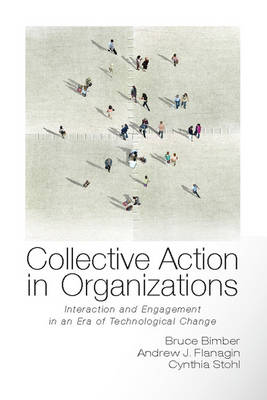Communication, Society and Politics
2 total works
Collective Action in Organizations
by Bruce Bimber, Andrew Flanagin, and Cynthia Stohl
Published 1 January 2012
Challenging the notion that digital media render traditional, formal organizations irrelevant, this book offers a new theory of collective action and organizing. Based on extensive surveys and interviews with members of three influential and distinctive organizations in the United States - The American Legion, AARP and MoveOn - the authors reconceptualize collective action as a phenomenon in which technology enhances people's ability to cross boundaries in order to interact with one another and engage with organizations. By developing a theory of Collective Action Space, Bimber, Flanagin and Stohl explore how people's attitudes, behaviors, motivations, goals and digital media use are related to their organizational involvement. They find that using technology does not necessarily make people more likely to act collectively, but contributes to a diversity of 'participatory styles', which hinge on people's interaction with one another and the extent to which they shape organizational agendas. In the digital media age, organizations do not simply recruit people into roles, they provide contexts in which people are able to construct their own collective experiences.
This book assesses the consequences of new information technologies for American democracy in a way that is theoretical and also historically grounded. The author argues that new technologies have produced the fourth in a series of 'information revolutions' in the US, stretching back to the founding. Each of these, he argues, led to important structural changes in politics. After re-interpreting historical American political development from the perspective of evolving characteristics of information and political communications, the author evaluates effects of the Internet and related new media. The analysis shows that the use of new technologies is contributing to 'post-bureaucratic' political organization and fundamental changes in the structure of political interests. The author's conclusions tie together scholarship on parties, interest groups, bureaucracy, collective action, and political behavior with new theory and evidence about politics in the information age.

